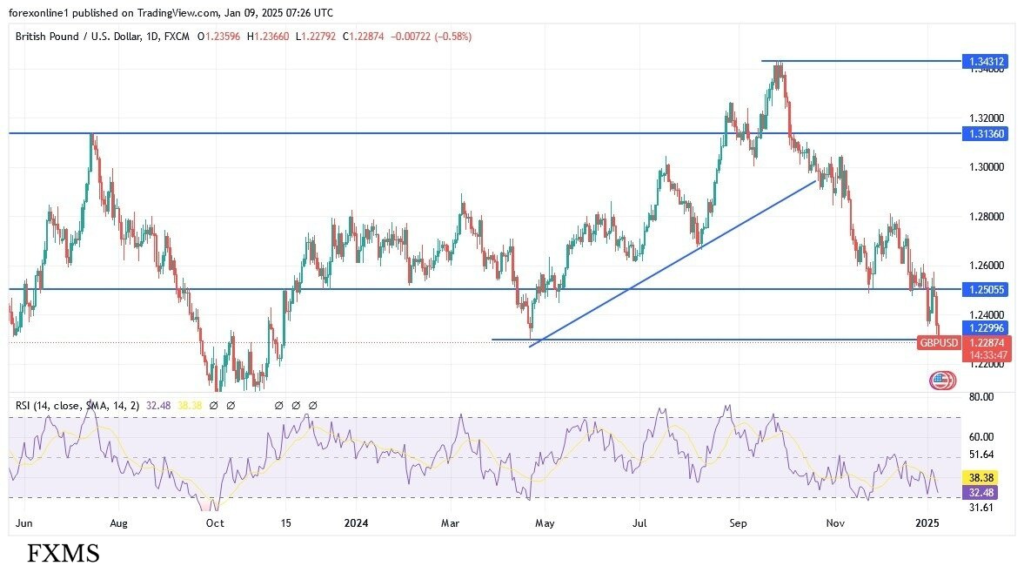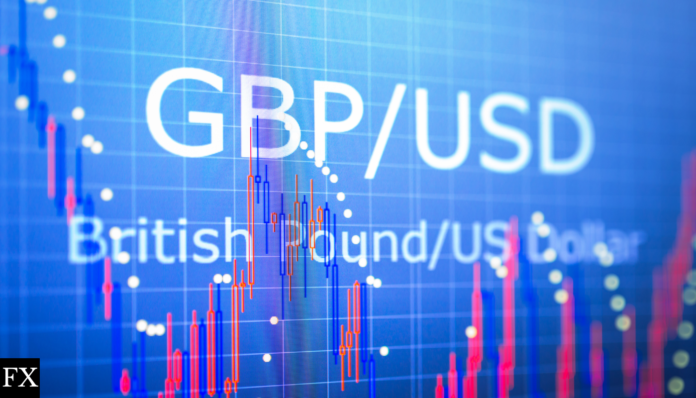- GBP/USD Plunge: The GBP/USD pair rapidly declined to a support level of 1.2320, near its 8-month low.
- Dollar Gains: The US dollar strengthened against other major currencies due to signals about future interest rate cuts and anticipation of Trump’s policies.
- Limited Rebound: The pound attempted a rebound but failed to surpass the resistance level of 1.2494.

Dollar Strength Overpowers UK Economic Factors
The recent selling pressure on the pound appears to stem from a more dominant US dollar, overshadowing high UK borrowing costs, which are approaching a 27-year peak. Further contributing to the pound’s decline are concerns regarding potential aggressive US trade policies. Reports suggest that the incoming US president might declare a national economic emergency to impose broad tariffs, potentially impacting both allies and adversaries. Such policies, if implemented, are expected to further bolster the dollar.
Despite rising UK bond yields, which have outpaced those of US Treasuries, the pound has failed to gain traction against the stronger dollar. This highlights the extent to which dollar strength is currently impacting currency markets. Furthermore, investors are anticipating the Bank of England may cut interest rates by around 50 basis points this year, despite UK inflation remaining above the 2% target. This prospect of rate cuts further weakens the pound’s attractiveness.
UK Government Financial Plans Add to Uncertainty
Adding to the downward pressure is the upcoming speech by the UK’s finance minister. The market anticipates this speech will focus on potential cuts to public spending rather than tax increases. The government is expected to emphasize its commitment to financial rules, aiming to reassure investors and businesses regarding the UK economy. While these efforts aim to project stability, the UK is still experiencing high debt levels, making it more vulnerable in the global bond markets. This is further complicated by a recent drop in government bond yields, threatening to absorb a limited financial margin of 9.9 billion pounds.
Technical Analysis Indicates Continued Downward Trend
Technical analysis for the GBP/USD pair suggests a continuation of the current downward trend. The pair is currently facing resistance from a downward trendline connecting recent high points since mid-November. Key indicators support this outlook:
- The 100-day simple moving average is below the 200-day simple moving average, signaling a bearish trend.
- The 100-day simple moving average aligns with the aforementioned trendline, reinforcing it as a strong resistance level.
Based on Fibonacci retracement levels, potential downward targets include:
- 1.2416 (38.2% level)
- 1.2370 (50% level, aligning with recent lows)
- 1.2323 (61.8% level)
- 1.2266 (76.4% level)
- 1.2174 (full extension level)
The Stochastic and RSI indicators also point to a continued downward trajectory, with the Stochastic trending lower and the RSI not approaching overbought conditions, indicating persistent selling pressure. This suggests that sellers may maintain control, and there is likely room for the pair to decline further before any oversold conditions could potentially signal a reversal.
Trading Advice
Given the prevailing market conditions and the strength of the US dollar, it may be prudent to approach the GBP/USD pair with a strategy of selling from any upward levels. The technical indicators currently favor a continued bearish trend.
Ready to trade the GBP/USD Forex analysis? Check out the best forex trading company in UK worth using.

